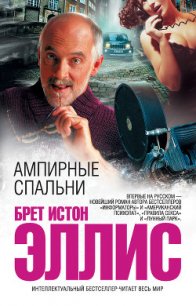Ice Blues - Stevenson Richard (бесплатные онлайн книги читаем полные версии .txt) 📗
"Not offhand. I can check. Give me twenty minutes. I'll have to call in."
"Also, Robert Milius and the other entrepreneurs who were busted along with Jack Lenihan in '82. Present place of incarceration and known associates who might still be in the Albany area."
"Twenty minutes."
Back in the store I bought a pint of grapefruit juice and sloshed it around inside my head to mask the taste of the cold cuts, which in fact had been cold and cut off something. With a pocket full of quarters for the pay phone, I went back to the car and watched the Trenky house until a little after seven, when I made my call.
"Robert Milius, Jacob Farnum, Alton 'Boo' Waggoner, and Leonard 'Ringo'
Romeo will remain in Sing Sing State Correctional Facility until the year 2002 at the earliest. Mack Fay, born Albany, 1931, convicted of felony auto theft in 1976, paroled from Sing Sing November seven of last year, currently residing Troy, New York. No previous convictions." He gave me Fay's address on Third Avenue while I watched its front door. "No known associates of Milius and company remain in the area. The rest of them took off for parts unknown in '82, and of course Jack Lenihan is dead. Anything else?"
"Can you find out if Fay knew Milius or any of the others at Sing Sing?"
"That'll take a little longer. Why do you ask? It's time I found out what you were mixed up in, Strachey."
"No, it's not time, yet. Soon."
"Uh-huh. I think you owe me, however. I've been more than generous. Give me a simple explanation and we'll call it even."
"A simple explanation is too much to ask. How about if I sent you four dollars?"
"Are you in trouble?"
"Sure."
"I hope whatever you expect to get out of this is worth it?"
I said, "You can't put a price tag on good government," and, before he could call me a pompous fool, hung up. I had no time for cynics.
I'd missed Keillor's monologue but got back in the car in time for some good stride piano playing, to which I tapped my sweating feet. I tapped them off and on for another forty minutes, at the end of which time the front door opened at the Trenky residence and a man emerged.
Stocky, fiftyish, wrapped in a heavy green parka, the man quickly wiped the snow from the roof and windshield of the pickup truck, started it, waited half a minute for it to begin to warm up, and pulled out onto the avenue. He made a U-turn in the intersection in front of me and headed south. I followed.
Traffic was light on account of the storm, and I stayed well behind the truck through Troy, across the river, out Route 7, down the Northway, and into the Albany County Airport access road. When the pickup slowed and turned right by the AIR FREIGHT sign, I went on by, circled past the main terminal, and parked on the verge along the exit road. Ten minutes later the pickup passed me, moving back east again, and I followed.
When the pickup stopped for a red light on Route 7, I pulled up close behind it. Its bed appeared to be empty except for two feet of snow, but through the rear window I could make out what looked like suitcases stacked on the seat beside the driver. So much for any attempts at sleight of hand from the truck bed.
I let the truck move ahead of me again, pulled into a McDonald's, drove around the building to an exit, then followed the taillights of the pickup through the light snow back into Troy. I turned up First Avenue, went three miles an hour faster than I should have, and was parked in the Cumberland Farms lot when Mack Fay came up Third and pulled up in front of the Trenky house. He got out and hollered something in the front door and, one by one, handed the five bags up to a middle-aged blond woman who stood in the entryway in a pink housecoat. Fay followed the woman into the house then and shut the door.
I sat. I thought about calling APD and spilling it all to whoever Bowman had left in charge of the murder investigation during his trip west. Fay's possession of the five suitcases, presumably from Joan Lenihan and presumably containing the two and a half million, would be circumstantial but powerfully so. As a parolee, Fay could be asked to account for his sudden vast wealth, and other relevant information might be made to shake loose.
On the other hand, if Fay was in fact Jack Lenihan's killer, anything short of an immediate arrest and incarceration without bail might set him running in the company of the suitcases-and the DA might consider the circumstantial evidence too flimsy to justify holding Fay. I had seen that happen.
What I needed was more evidence connecting Fay to Jack Lenihan. There had been the phone call from LA to Flo Trenky's number on Monday, when Jack was alive-this, I thought, was Jack notifying Fay of his flight number and arrival time on Tuesday. And there had been the call from LA to Flo Trenky's number Friday afternoon-this presumably was Joan notifying Fay that she was returning the cash via Air Freight. But it was all so circumstantial that it seemed possible Fay might cook up an explanation and a set of alibis that would get him off the hook just long enough for him to bolt with the five suitcases, whose contents I intended to possess.
Two questions nagged. Why had Jack Lenihan trusted Mack Fay to the extent that Lenihan could phone Fay from LA and ask him to meet his plane? And why, if she knew that Fay could well have been the man who killed her son- and she must have suspected him-did Joan Lenihan turn over the money to Fay instead of notifying the police? She had been vague and unconvincing on that topic, giving me opinions about the wickedness of Albany that lacked illuminating specifics.
I decided there was a lot more I had to find out before I went to Bowman.
He might conceivably identify and even arrest, charge, and convict Jack Lenihan's killer, but the two and a half million might end up in the state's coffers and get spent on bridge repairs and new hats for fish wardens, both worthy expenditures, but Jack Lenihan had a better idea and I was high with the fever to carry it out. I was going to change history, make improvements on it.
I made a plan of action and set out. First, I went back to the pay phone. It was just after six in Los Angeles and I caught Timmy at Kyle Toot's place.
They had just come in from taking the Universal Studios tour, where Timmy said he had witnessed Hump Finkley of Chompin Choppers drinking from a carton of chocolate milk. I said I was sorry I'd had to leave early and miss it.
It took me twenty minutes to convince the two of them to drive to the LA airport and get on the first flight with an O'Hare connection to Albany. But after I described my own plans for the night and promised to cover all expenses from a special account I planned to open soon, they took mild grudging pity and agreed to do it.
I shut off the car, locked it, and explored the neighborhood, which was quiet except for the plop of wet snow plummeting from utility lines. I glanced up at Flo Trenky's heavily curtained front windows, then went around the block and down an alley, counting houses as I went. The snow in the alley was heavy and deep. My feet were cold. I kept wiping my nose and wished Timmy were there to produce a hanky from his sleeve, stitched with the seal of the New York state legislature.
The Trenky property, like its neighbors, had a crumbling board fence walling off the alley from a narrow yard. The gate of the Trenky fence was ajar, lodged in a snowdrift, which I was glad to take note of. I entered the yard, slogged through the drifts, and crouched below the decrepit three-story back porch, which clung to the rear wall of the house feebly, as if it would soon lose its benumbed grip and tumble away. Stairs ran up to the second floor of the porch and on to the third.




